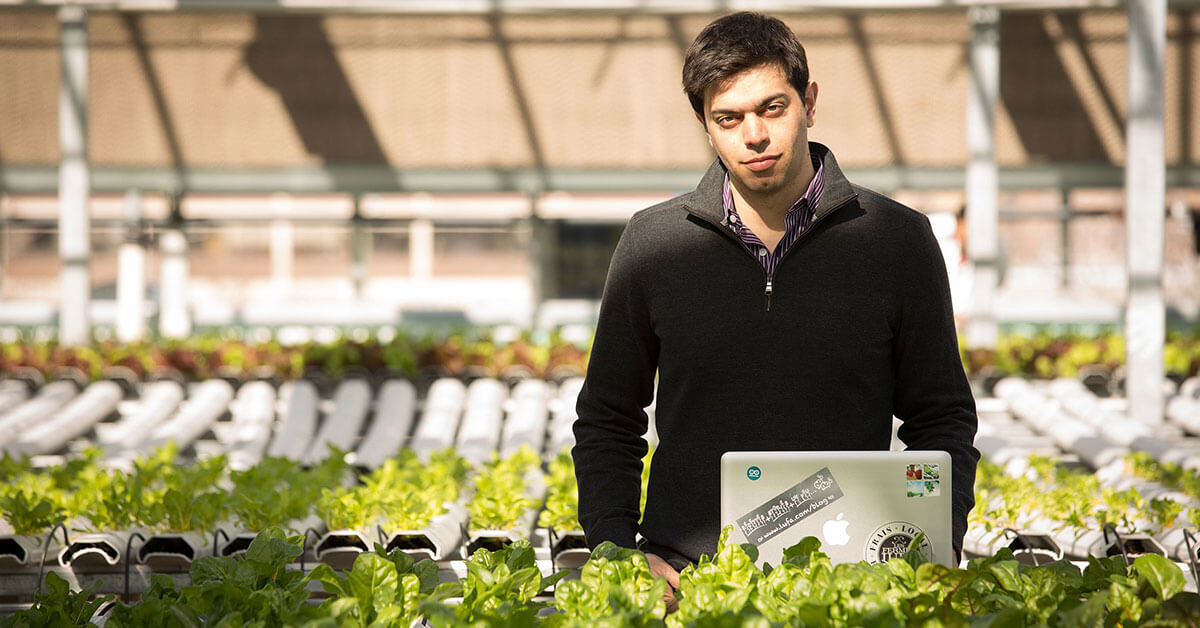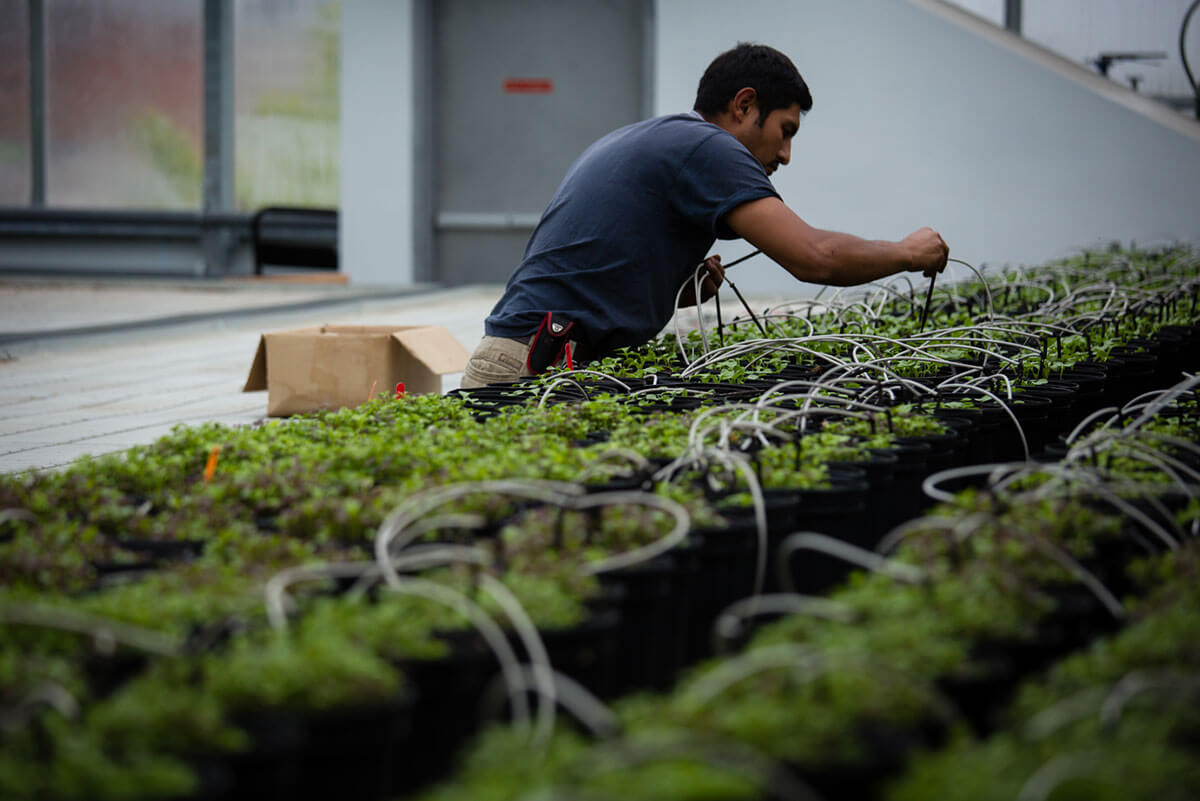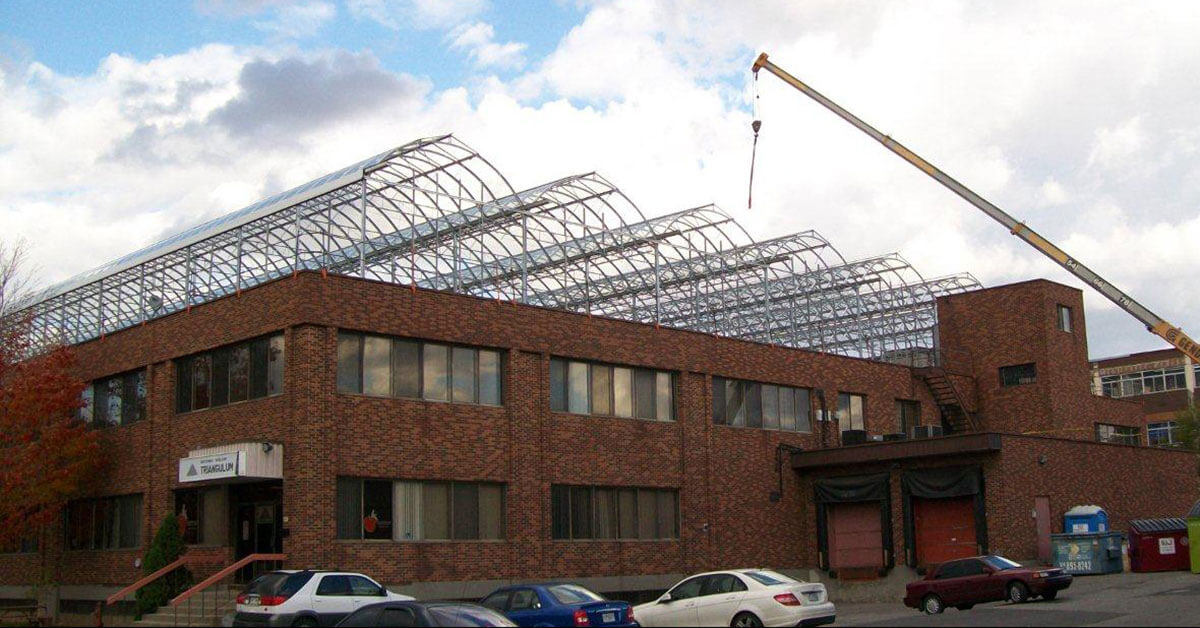 Set with a vision to create a better food system, Lufa Farms is revolutionizing urban farming in Canada. Co-founder Mohamed el Hage, a passionate Lebanese, is pioneering this movement.
Set with a vision to create a better food system, Lufa Farms is revolutionizing urban farming in Canada. Co-founder Mohamed el Hage, a passionate Lebanese, is pioneering this movement.
I was lucky to meet him with the rest of the Agrytech Program team at the rooftop greenhouse in Montreal during our October trip to Canada. Needless to say, the visit was a great lesson on what it means to innovate in agriculture technology and how to grow food sustainably.
Inspiration From the Home Country
If it had crossed your mind, it is indeed that the farms were named after the Loofah plants growing on the terraces of traditional Lebanese homes. Mohamed, who landed in Quebec at the age of 12, wanted to grow, in Canada, fruits, and vegetables with the same taste and freshness of his motherland. In 2011, he built with his partners the world’s first commercial rooftop greenhouse and harvested his very first crop.
Fast forward to 2017, Lufa Farms now boasts around 13,000 m2 of growing space feeding more than 10,000 families every week, year-round.
This kind of scale-up does not come without its own set of challenges. “Our biggest challenge was building everything from scratch, at once. We had to design and engineer the greenhouse, develop software for our distribution center, learn how to grow food sustainably and in polyculture, create a purchasing department and market our services. When issues arise, solving those problems individually is manageable but like most businesses, issues come in bunches, in multiple departments, and solving those issues simultaneously is quite a formidable challenge. Today, I’m proud to say that there are over 22 departments at Lufa Farms, and we’re just getting started,” explains Mohamed.

How Do Lufa Farms Feed a City?
Hard work is Mohamed’s mantra for taking his business idea and turning it into what it is today. “It might sound cliché but ideas can only get you so far whereas hard work will take you the rest of the way. Without discipline and an incredible work ethic, I don’t believe it’s possible to innovate, no matter the industry you’re in. We built a company with many unknowns, but early on we made a promise to ourselves: this will work and we’ll make it happen through dedication, sacrifice, and hard work.”
The passion of the founders is a true inspiration. They were able to make agriculture half science-half science rather than half science-half art.
Lufa Farms deliver thousands of food baskets filled with their rooftop-grown veggies to their customers. They created an online platform that allows their clients to customize and order their food baskets up to midnight of the delivery date. The packing would happen overnight and they would receive their products in the morning.
The baskets mix 25% Lufa Farms production and 75% from their network of suppliers. They have combined farming on rooftops in cities, partnering up with local farmers and food makers, and creating a community of pick-up points to deliver all this food as directly as possible to create a complete, re-invented food system.

Responsible Farming and Sustainability
Lufa Farms use the lost space on urban rooftops to build the greenhouses, using no new land. In winter, the greenhouse is warmed using the heat from the building and the cost of heating is reduced by this exchange. At the same time, the greenhouse is used as a buffer to reduce the heat from the sun keeping the building cool in the summer.
Lufa Farms build on a healthy ecosystem using no pesticides in the greenhouse, having beneficial insects eating on harmful insects, so it’s a relatively pest controlled environment. The farms collect and use rainwater for irrigation and compost green waste. They also use electric cars for their basket deliveries to minimize environmental impact.
When asked whether Mohamed believes that his business model can be applied to Lebanon, he replied, “This is a tricky question as, on one hand, rooftop farming is most relevant in colder markets that have large, industrial-sized roofs of 100,000+ sq.ft, which allows the producer to benefit from the building’s natural heat. On the other hand, Lebanon also has the perfect mix of incredible, local food makers that our business model requires. All in all, despite the amazing food we can find in Lebanon, I don’t believe that our business model would work due to the climate and lack of large, industrial-sized buildings that we require.”
On a final note, I am hoping that Mohamed’s story and the visionary work Lufa Farms has done in reinventing a new food system inspires entrepreneurs who are innovating in the agri-food sector, especially those who are part of our Agrytech Accelerator. I encourage our new batch to incorporate sustainability in every aspect of their startup so that their impact will be as drastic as the world needs it to be.
 /About the writer/
/About the writer/
Ramy Boujawdeh, Deputy GM of Berytech, has more than 17 years of international experience in management in different disciplines, with diversified knowledge in the fields of change and quality management, operations, and entrepreneurship support programs. With a strong business mindset and a firm commitment to achieve excellence, Ramy is an Angel Investor and actively advises early-stage startups in Lebanon. Ramy holds a B.S. in Agriculture Engineering from the American University of Beirut, and an M.S. in Business Management and Economics.







